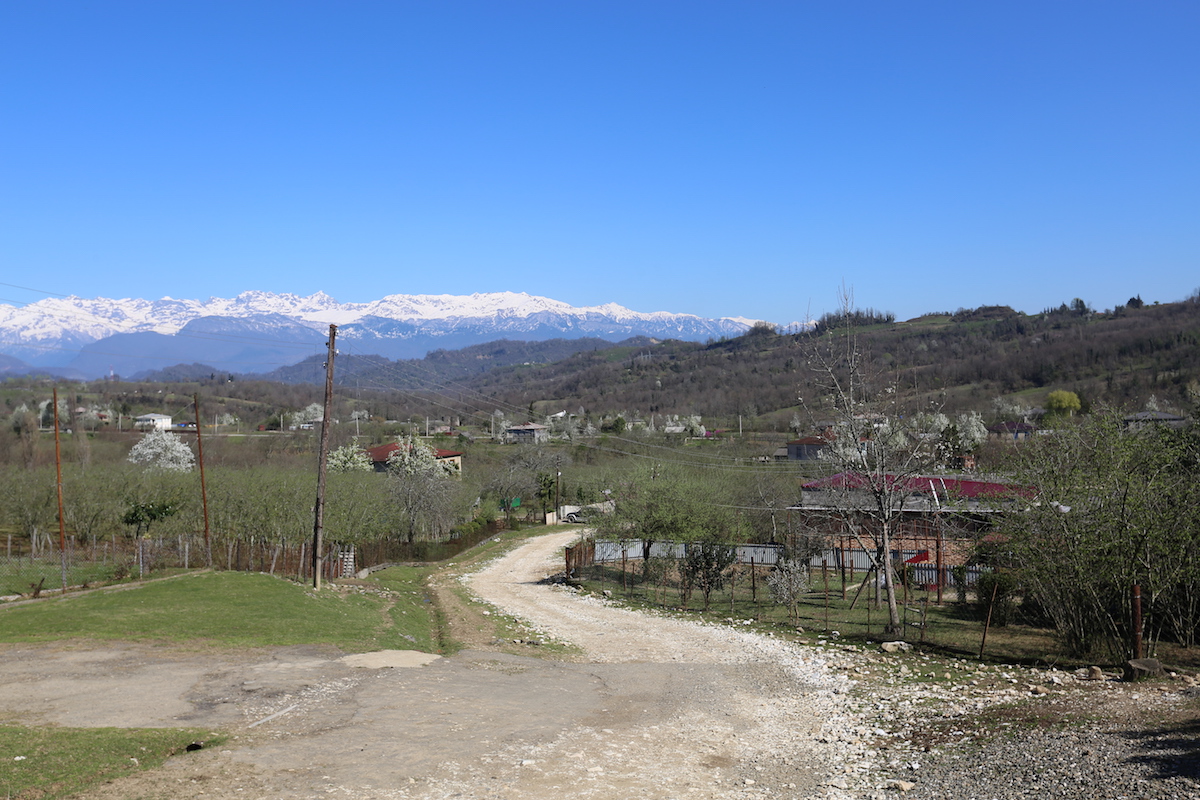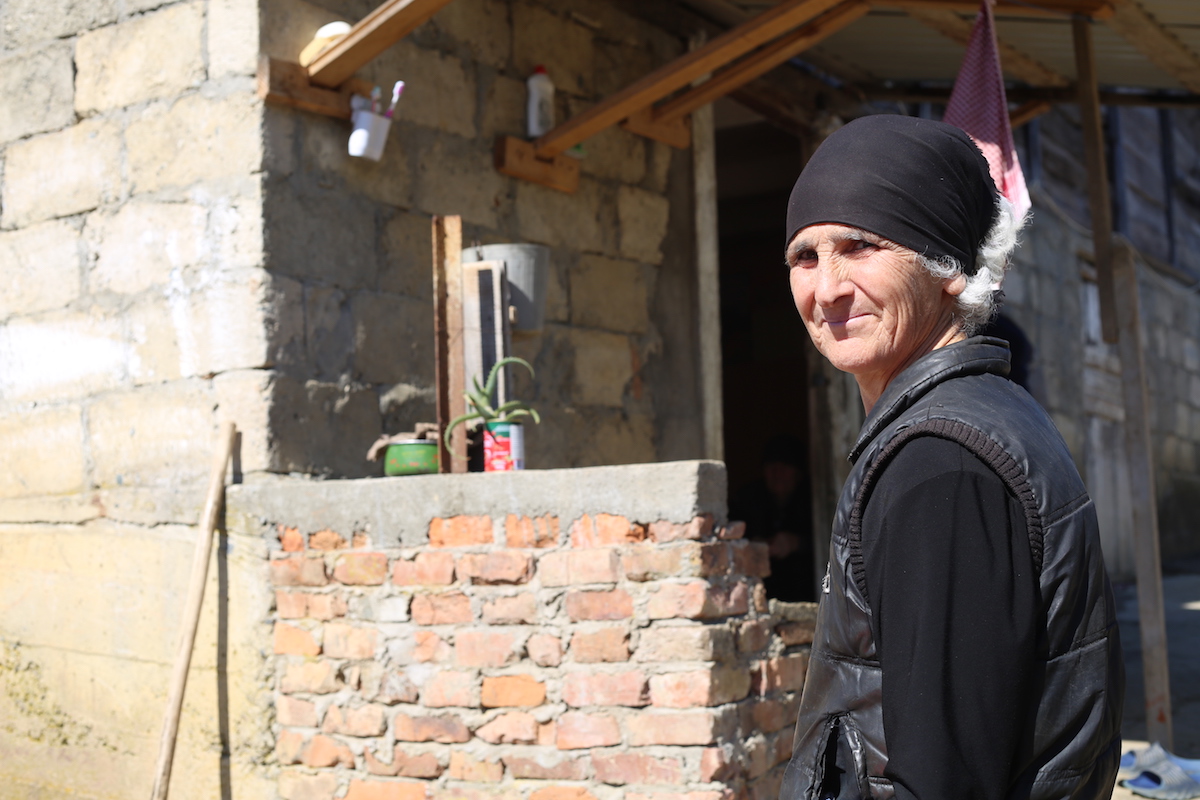Gal Elections held amidst concerns about Georgians’ naturalisation, not new parliament
March 26 parliamentary election in Gal district, Abkhazia, was of a unique nature which made it different from the rest of the territory of the republic. This district is predominantly populated by ethnic Georgians and only few of them are eligible to vote.
=========================================================================
Gal district is an administrative unit of Abkhazia. According to the 2011 population census data, ethnic Georgians/Mingrelians make up 98,21% of the population. It is situated in the immediate vicinity of the Ingur [Inguri, and also Enguri – Georgian version] River, which is regarded as the separation line in the Georgian-Abkhazian conflict. Ingur HPP, Abkhazia’s key energy enterprise, is located in the Gal district.

What are the major problems that the Georgian population is facing?
– Complicated procedures for acquisition of Abkhazian citizenship;
– Restriction of the right to receive education in Georgian language;
– Toughened border control
=========================================================================
Gal constituency #35, the voters’ list, didn’t exceed 600 people despite the fact that the population of this district is around 35,000 people.
Such a big difference between the overall population size and the number of those eligible to vote in the parliamentary election, comes down to a major political problem concerning passports.
It was that very issuance of passports to Georgians in the Gal district that actually triggered the early resignation of the then-President, Alexander Ankvab [a newly elected MP], in May 2014.
Three years ago, the parliamentary commission dealing with the issuance of passports to the local residents concluded that special passport commissions at the local administrations, that were set up in three eastern regions of Abkhazia back in 2009, were organized in violation of the legislation that was in effect.
The activity of those commissions was declared illegal, since it was beyond the competence of district administration to deal with naturalization issues. Also, in the Parliament’s opinion, those passports were issued in violation of the Law on Naturalization of the Republic of Abkhazia.
The aforesaid law allows for dual citizenship, provided that the second passport is a Russian one. The majority of residents of the Gal district hold Georgian citizenship. But they neither made a display of this fact, nor did they make a big secret of it.
The country’s former leadership invented a certain form of legalization of this process, so as to somehow fit into the naturalization law. It stated as follows: ‘Any citizen of Gal district willing to acquire Abkhazian citizenship should submit a letter of renunciation of their Georgian passport.’
However, this paper didn’t have any effect since an applicant still retained their Georgian citizenship, and, at the same time, was an Abkhazian document holder.
After President Ankvab’s early resignation, citizenship for passports issued in that district were revoked, and are now regarded as regular ID forms. A holder of such a document can receive a salary, pension, make banking transactions, be employed, but he/she can’t participate in the political process.
A document-holder can vote in the local election, but he/she is banned from casting a vote in the presidential or parliamentary election.

Back to the issue of Abkhazian citizenship for local Georgians
Thus, the issue of naturalization of local Georgians also became a subject matter of campaign controversy in the Gal district in 2017.
Eight individuals were initially registered as MP candidates here and only one of them, Kakha Pertaia, could be regarded as 100%-local. He was born and raised here. He works as a district prosecutor. As for the rest of the candidates, they either worked in this region or had absolutely nothing to do with it before the election.
7 out of 8 MP candidates were talking about the need for changing the existing situation, criticizing the decision to annul Abkhazian citizenship for the residents of this region.
Kakha Pertaia was the only person who kept himself aloof from passport-related criticism. But it’s he, who will eventually represent the district in the parliament, having won the election runoff on Sunday, 26 March. He could have won the first round too, but he lacked a few dozen votes.
Pertaia supports the government’s pursued policy on issuance of residence permits to Gal residents, who have been revoked citizenship. The document issuance process will presumably start in the near future.
In the election runoff, Pertaia competed with Dmitry Adleiba, who is known for his harsh criticism of the authorities over naturalization and issuance of passports to the population of the Gal district.
“However, after a while, the situation changed for some reason and it turned out that only a few hundred citizens cast their votes. However, when it comes to civil position of the population in Gal district, it has the highest fiscal performance. People regularly pay taxes and interact with the government.”
The specifics of the Gali district MP candidates’ promotion campaign markedly differed from that in the rest of Abkhazia. MP mandate contenders didn’t have to turn into temporary foremen to repair roads, clean up parks and change transformers to please the electorate.
The district center is probably the best and most well-tended residential area in Abkhazia. There is an unusual cleanness around, well-groomed park lawns, whitewashed trees and asphalted roads.
“We have no problems with power transformers, including rural areas,” said Timur Nadaraia, the Head of Gal district administration.
“Last year we started charging a lease fee for above-the-norm use of land. At the same time, it was decided that all the funds collected in each village would remain there and could be spent on communal needs.
So, now we have transformers installed and new power transmission lines laid almost in each and every village. A bridge is being repaired in one area and a water supply system is being laid in another.
For example, 1,5 million RUB have been accumulated in Otobaia village’s account. There may be more funds in Otobaia’s account now than in the country’s treasury.”
The election runoff in Gal district proceeded without that nervousness that could be observed in nearly all electoral constituencies. The election results could have been calculated by noon already, since the overwhelming majority of the electorate, who decided to exercise their right to vote, did it in the morning.
‘Voting in the morning is a continuous tradition that has been maintained in Gal district since the Soviet times. You cast a ballot in the morning and go about your business. Spring has come and there is a lot to be done,” one of the MP candidates’ observers explained.



















